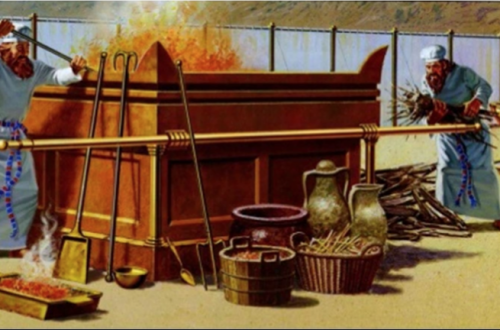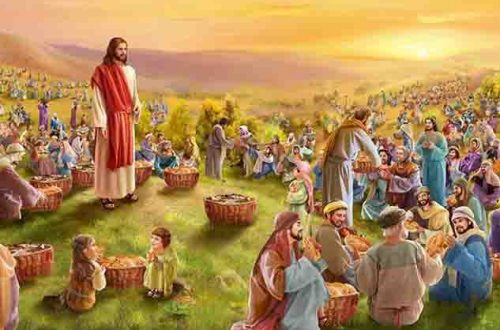Good News – Ecclesiastes 7
Introduction
Ecclesiastes is a fascinating book filled with peculiar wisdom. It is attributed to Solomon and was most likely written toward the latter part of his reign in his old age. Throughout the book you can feel the almost melancholy from the writer as he describes the pointlessness of wasting one’s life on unimportant things, of trying to figure out the unfathomable instead of simply reveling in it, and of a selfish worldview in general. The wisdom of Chapter 7 includes a number of things the average person would think unusual if not crazy yet when one squints to peer using Solomon’s vision, truths appear which are far deeper than surface observations reveal.
Introduction
Ecclesiastes is a fascinating book filled with peculiar wisdom. It is attributed to Solomon and was most likely written toward the latter part of his reign in his old age. Throughout the book you can feel the almost melancholy from the writer as he describes the pointlessness of wasting one’s life on unimportant things, of trying to figure out the unfathomable instead of simply reveling in it, and of a selfish worldview in general. The wisdom of Chapter 7 includes a number of things the average person would think unusual if not crazy yet when one squints to peer using Solomon’s vision, truths appear which are far deeper than surface observations reveal.
Father Knows Best
Eccl 7:13 Consider the work of God: who can make straight what he has made crooked? We tend to think we know best. But we don’t. We don’t know and we don’t understand. We strive, but we never know fully. Job figured out his limitations the hard way. So did Solomon. So have a great many, including me. When we realize we don’t know and we come to terms with the fact God does it becomes possible for us to truly trust Him. This is the very heart of the message Jesus was trying to express when he said, “whoever does not receive the kingdom of God like a child shall not enter it.” (Lk 18:17)
Human Righteousness vs. Godly Righteousness
Eccl 7:15-16 In my vain life I have seen everything. There is a righteous man who perishes in his righteousness, and there is a wicked man who prolongs his life in his evildoing. Be not overly righteous, and do not make yourself too wise. Why should you destroy yourself? Solomon was a wise observer. I considered carefully this passage and came up with two ways of looking at it. In context it appears the righteous man he first speaks of is one who only thinks he is righteous. I think you could say it was a pious or religious man who perishes in his self-righteousness. Likewise, the wicked man is the sinner who sees himself for what he is lays his soul before the Lord, bowing in submission as an acknowledged sinner in need of a savior. I favor this perspective because he goes on to say not to be “overly righteous” and “too wise” because it is self destructive. The other way of looking at it, still in context, is to see the rain falls on the just and unjust alike. You can be righteous before God and still not be the sharpest tool in the shed. Through ignorance or the betrayal of the world you can still suffer and die early. Likewise, you can live beyond your usefulness through cunning, but ultimately your cunning (worldly wisdom) can’t save you even though you might get a little extra time in this world.
Don’t Be Stupid
Eccl 7:17-18 Be not overly wicked, neither be a fool. Why should you die before your time? It is good that you should take hold of this, and from that withhold not your hand, for the one who fears God shall come out from both of them. Regardless of your interpretation of the preceding verses (above), don’t take your status as a sinful being as a license to sin (Ro 6). To do so is to miss the point completely. You risk death in so doing (1 Cor 10:23). Trust YHWH and you can overcome both self-righteousness and sin.
Natural Stupidity & The Supernatural Plan
Eccl 7:20, 29 Surely there is not a righteous man on earth who does good and never sins. … See, this alone I found, that God made man upright, but they have sought out many schemes. We aren’t perfect. We lie if we claim to be. We cannot be, at least not on our own. The point here is to understand that you cannot ever be found adequately pure and holy in the eyes of God on your own. God is holy (Rev 4:8) and he requires us to be holy (1 Pe 1:16/Lev 11:44). Apart from the gift of sanctification and purification through the redemptive power of Jesus’ atoning blood sacrifice we cannot be made holy (1 Jn 1:7). There has always been a plan (Heb 13:8). In fact, we are made in his image to fulfill this plan (Gen 1:27, Ro 8:28-30).
The Good News of Eccl 7
Eccl 7:1 A good name is better than precious ointment, and the day of death than the day of birth. In this world a “good name” is relative. What matters is having a good name in the mouth of Jesus. I believe a good name is one found in the Lamb’s Book of Life (Rev 21:22-27). It makes little difference if having a good name before Christ means your name is hated by men, for we know the light is hated by darkness and if you are truly serving Christ there will those who will hate you, persecute you, and slander you (Mt 5:11-12). Believe (Jn 3:16) and obey (1 Jn 5:2) and you fulfill the first and greatest commandment, to Love YHWH (Dt 6:5). Love (Jn 15:12) covers sin (1 Pe 4:8), and the greatest love (Jn 15:13) was shown on the cross when Jesus gave his own blood (Jn 19:33-35, 1 Pe 1:2) to atone for our sins (Lev 17:11). The plan was completed (Jn 19:30). If we admit Jesus is Lord (Mt 16:16, Ro 10:9-10) and submit (Ro 8:6-8) and commit (Lk 9:23) to his authority, then we are truly believing (Jn3:16) and the gift we receive for our faith, being infinitely beyond what we are able to earn (Eph 2:8-9), is why we have reason for hope (Is 53:12). Our hope is that the day of death will in fact be better than the day we were born, not because this life was so bad, but because eternal life is so much better. (1 Pe 3:18, Is 65:17-25, Rev 22).



